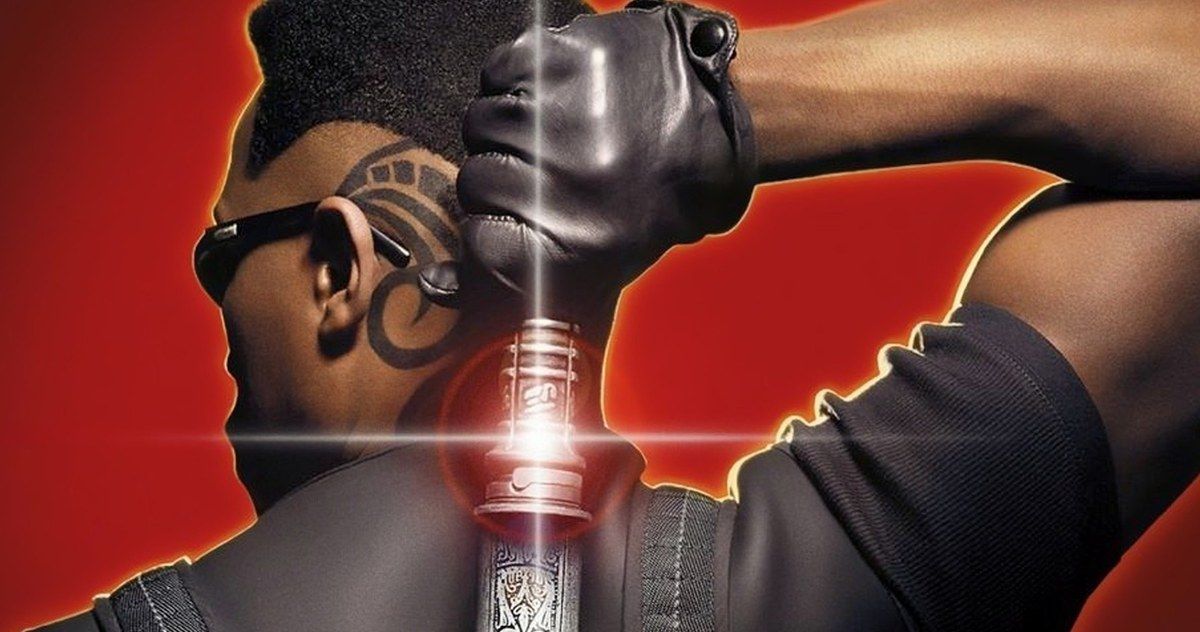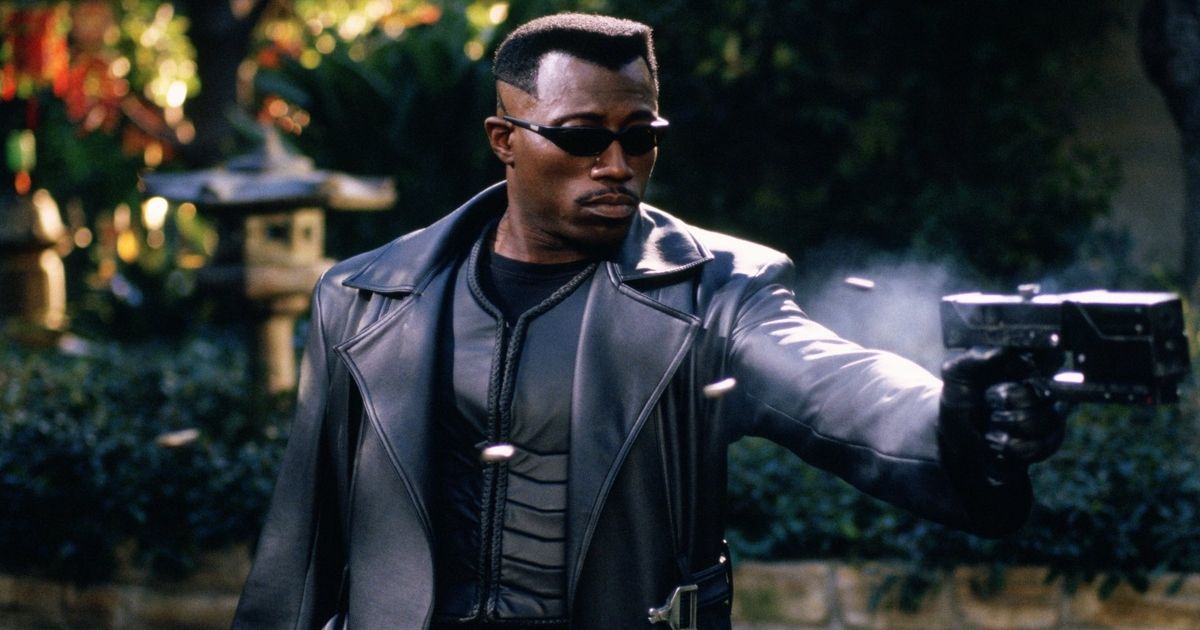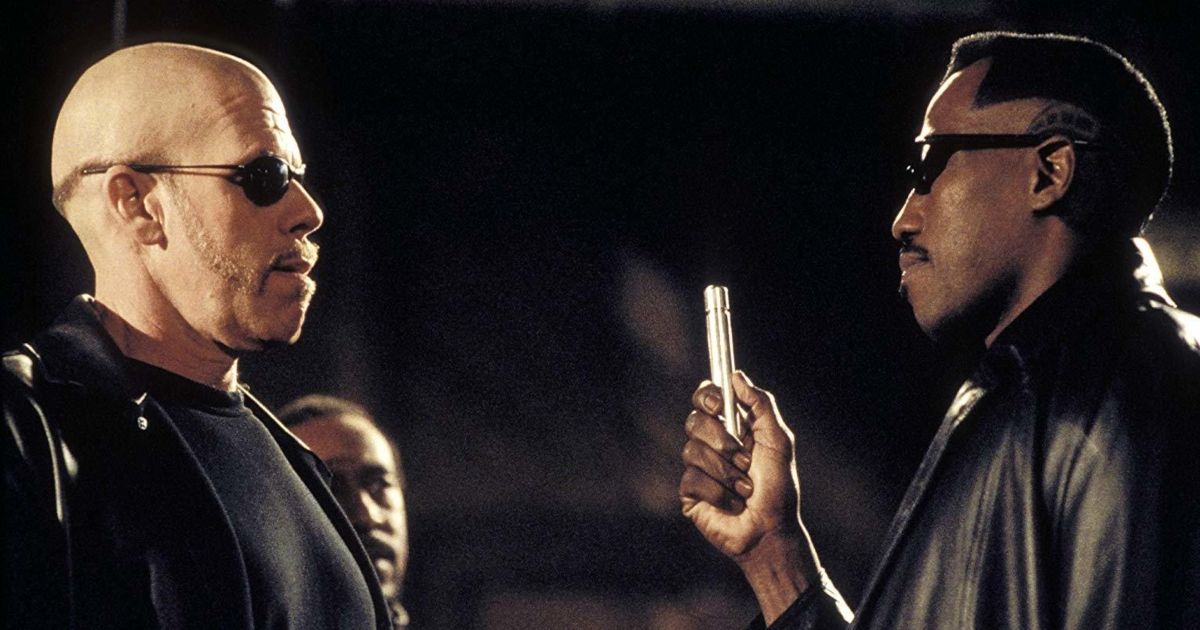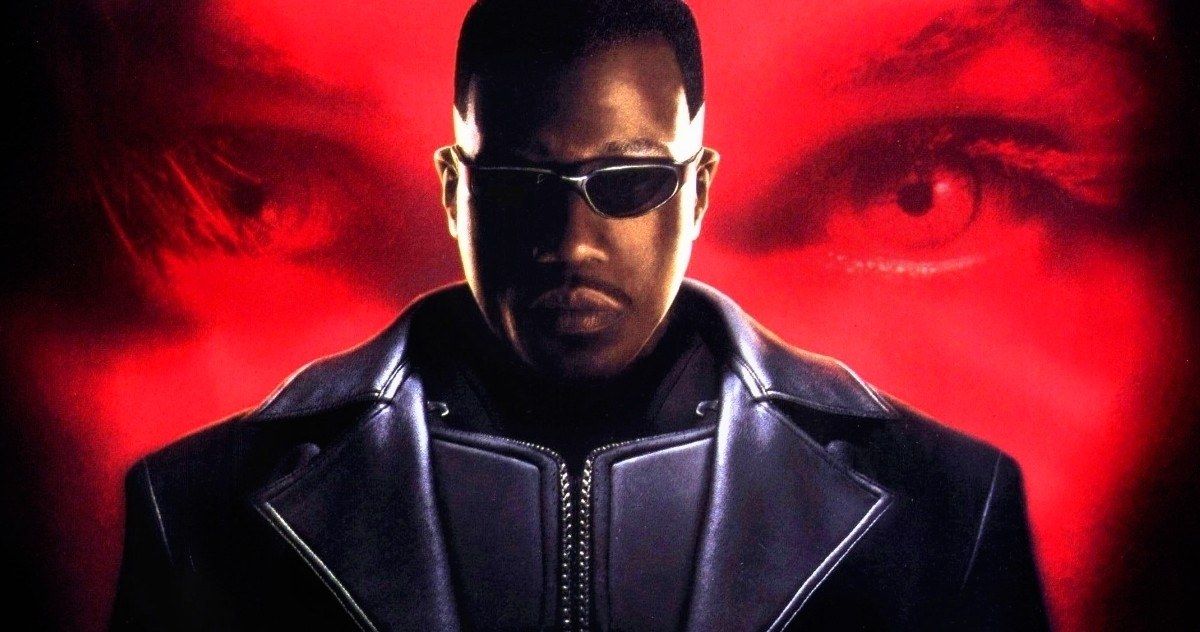In August 1998, New Line Cinema released Blade in theaters. Loosely based on the Marvel Comics character of the same name, the movie follows Blade (Wesley Snipes), who is a half-human/half-vampire hybrid known as a daywalker. Daywalkers have all the vampire's strengths but none of their weaknesses except for a thirst for blood. Blade's mission in life is to hunt down all vampires, and to seemingly look as cool as possible while doing so.
Blade was a box office hit that spawned a franchise with 2002's Blade 2, 2004's Blade: Trinity, and a short-lived prequel series on Spike TV with rapper Sticky Fingaz stepping into the role. Yet in the years since, the character sort of fell out of the spotlight in favor of bigger Marvel names. His popularity can be tracked through time by seeing that he was a main hero in the video game Marvel Ultimate Alliance in 2006, but was omitted in the sequel released in 2009.
The character is now set to join the Marvel Cinematic Universe with Mahersha Ali stepping into the role of Blade, and is set for release on September 6, 2024. This certainly relaunched the character and the previous film franchise back into the spotlight, with audiences nostalgic for it. While smaller scale compared to other comic book movies, Blade is also an important film in many factors of film history and often goes overlooked. Here is how Blade changed not just Marvel but also superhero movies, vampires, and the action genre as a whole.
The Blade Movies Are Sibling Films to The Matrix
Blade was released in August 1998, just eight months before The Matrix would hit theaters. The two films have a lot of similarities, including both featuring characters in all black leather with heavy amounts of gun action and martial arts but also both feature a bullet time sequence, although the one in The Matrix is certainly the more iconic. Since both films were being developed so closely to each other, one is not copying another; instead, it speaks to cultural trends that were going on at the same time.
The Matrix did have a huge impact on Blade 2, noted in the more exaggerated action scenes mixing CGI and wirework, and Blade: Trinity clearly invoking the name of one of the Matrix's lead characters. Yet Blade being released just months before The Matrix makes it safe to say that Blade is an underrated influence on many trends that would define action cinema for generations.
Blade Changed the Vampire Mythology
Vampires have been one of cinema's most iconic monsters, and have been scaring audiences since the earliest days of films. The 1990s even saw a brief resurgence in big-budget vampire films like 1992's Bram Stoker's Dracula and 1994's Interview with the Vampire. Yet many of these vampire stories followed the classic tropes of the genre.
Blade however takes a very different approach. Vampirism is not a supernatural element but instead is grounded in a scientific explanation. It is treated as a disease, one that can be treated and hypothetically cured. Classic religious iconography like holy water and crosses do not work, but garlic, silver, and sunlight are given real-world explanations for hurting vampires. Rooting vampirism in science fiction would later be used in other franchises like Underworld, while 28 Days Later would give a similar scientific virus explanation for vampirism. Blade set a new trend for merging classic monsters with modern-day science fiction.
Blade Laid The Groundwork For The MCU In Some Unexpected Ways
While it is hard to imagine there can be much overlap between an R-rated mid-budget action horror film and the more family-friendly entries of the MCU released by the Walt Disney Company, Blade has been the template that the MCU has been following since its inception. Before the release of the film, Blade was not a household name and was not even a major character in Marvel Comics. He first appeared in Tomb of Dracula #10 in 1973 created by Marv Wolfman and Gene Colan.
The film version of the character is a drastically reworked version of the comics' character, who is just a normal human who is immune to vampirism. The filmmakers realized the concept of Blade was a novel one and could make for an exciting film regardless of how popular he was among comic book fans. This ability to invest in the character's concept and potential for interesting stories is how Marvel Studios turned lesser-known name characters like Iron Man, Ant-Man, and Shang-Chi into household names. Drastically reworking a character's backstory, personality, and even comics' history was something Marvel implanted with The Guardians of the Galaxy, and those characters are now some of the most popular heroes at Marvel. Both Blade and The Guardians of the Galaxy comic book versions were later reworked to fall more in line with their cinematic incarnations, showing how sometimes changes to the comic book source material can lead to better stories.
Blade Helped Revive the Superhero Genre
Just one year before Blade hit theaters it seemed like superhero movies might be over as the disastrous release of Batman and Robin, Steel, and Spawn hurt the genre's reputation. Warner Bros. canceled their plans for a new Tim Burton-directed Superman movie titled Superman Lives starring Nicolas Cage. It seemed like Hollywood had cooled off on superhero films, but then entered Blade which while based on a superhero comic looked more like a paired-down urban action film with a horror movie twist.
Blade was not only a box office hit but well received by audiences. This was a major win for Marvel whose previous film adaptations were poorly received flops like Howard the Duck, 1990's Captain America, and the never-intended-for-release Roger Corman film The Fantastic Four. Blade was the first time a movie based on a Marvel comic was good. While studios had been trying to develop films based on popular titles like X-Men, Spider-Man, and the Hulk for decades and were certainly in development before Blade was, the fact that Blade was a hit gave the studios confidence to move forward with those films. X-Men was released two years later in 2000 and Spider-Man in 2002 would truly kick the genre into high gear, but it all started with Blade. If not for Blade, one wonders how different the superhero genre would look today.





